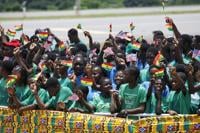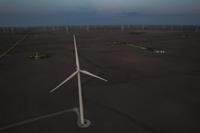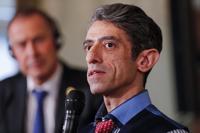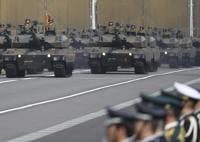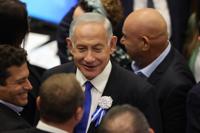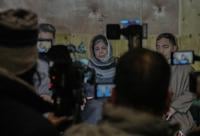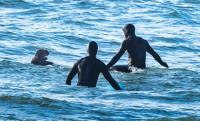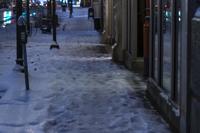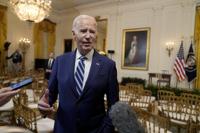ACCRA, Ghana (AP) — Misper Apawu is a photographer who works with The Associated Press in Ghana. She has covered politics, breaking news and sports.
____
This feature is part of a series highlighting Associated Press journalists for Women’s History Month. An earlier installment featured one of our photographers working in Bucharest, Romania, on .
____
I am a photojournalist living and working in Ghana. I often focus on the lives of women. My first encounter with photography occurred in a market in Dambai, a town in the Oti region of Ghana. During my childhood, while selling iced water in the market, I observed the women’s expressions brighten whenever tourists pointed their cameras at them. When tourists showed the women their pictures, they would beam with delight.
That happiness I witnessed inspired me to pursue photography when I was introduced to it as a young adult. Up until then, my knowledge of photography was limited to hobbies and events. But when I discovered the journalistic aspect of photography, I knew that was the path I wanted to take: to document historical events for future generations.
Like many other photographers, my family was initially skeptical about my career. They wondered whether it was sustainable. However, they started to accept my career decision when I was featured in national media for my work during s visit to Ghana. Seeing me in the news made them happy.
But I have also encountered discrimination. During a recent assignment, I was restricted from going beyond a specific boundary simply because I was a woman. Seeing male colleagues moving freely within that area while I was limited was frustrating. Despite this, I didn’t give up. I persevered and captured some of the best shots from where I stood.
One of my favorite assignments for The Associated Press was covering the . It was an incredible experience, capturing and submitting photos as quickly as possible, following security instructions and much more. Another memorable aspect was the reactions from people who saw the images.
On the second day of Harris' visit, a member of her team approached me and commended my work, saying that my photos were featured on the front pages in the United States. Additionally, I received an email from AP’s Headquarters in London, thanking me for my hard work. These were the highlights of that experience. It struck me that I had contributed to history. In the future, when people search for “VP Kamala Harris visits Ghana,” my photos will show up among the top results.
On the third day of her visit, on our way back from Independence Square, where Harris delivered a speech, someone from her team said that it was a great decision to have a female photojournalist document the event. I realized it was a unique opportunity for me to have documented this historic moment, not about just any other person, but a successful American woman of color, the first female vice president of the U.S. These are photographs that I’m going to cherish for a very long time.
On that same day, a member of Harris' team asked for just one photographer to go inside the with the vice president and second gentleman Douglas Emhoff, and they chose me. It was a mix of emotions: I was happy to document the moment, but I also felt a huge responsibility.
I knew the world awaited me to capture Harris in the Dungeon. I believed in myself and I didn’t disappoint. I delivered.


